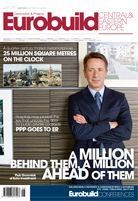The first panel, entitled ‘It’s Good Here Too’, was devoted to the prospects for the market in the CEE region and opened by a presentation by Kathryn Miller (STR Global). The figures for the region’s major markets all look promising, with the exception of post-Olympics Sochi and political crisis-hit Kyiv, which are both struggling with vacancy. Markus Beike (Christie+Co) told the audience that Prague remains particularly interesting for hotel investors due to its leisure and business mix, while Frédéric Le Fichoux (Cushman & Wakefield) spoke about Montenegro as an under-developed hotel market with great potential, but also pointed out that the lack of infrastructure in such locations will always discourage investors. Both concurred that Euro 2012 had had a positive effect in boosting Poland’s profile for leisure, while they also agreed that the question of whether the Ukrainian situation will attract or deter investors from the Polish market was one that is too early to ca




























































